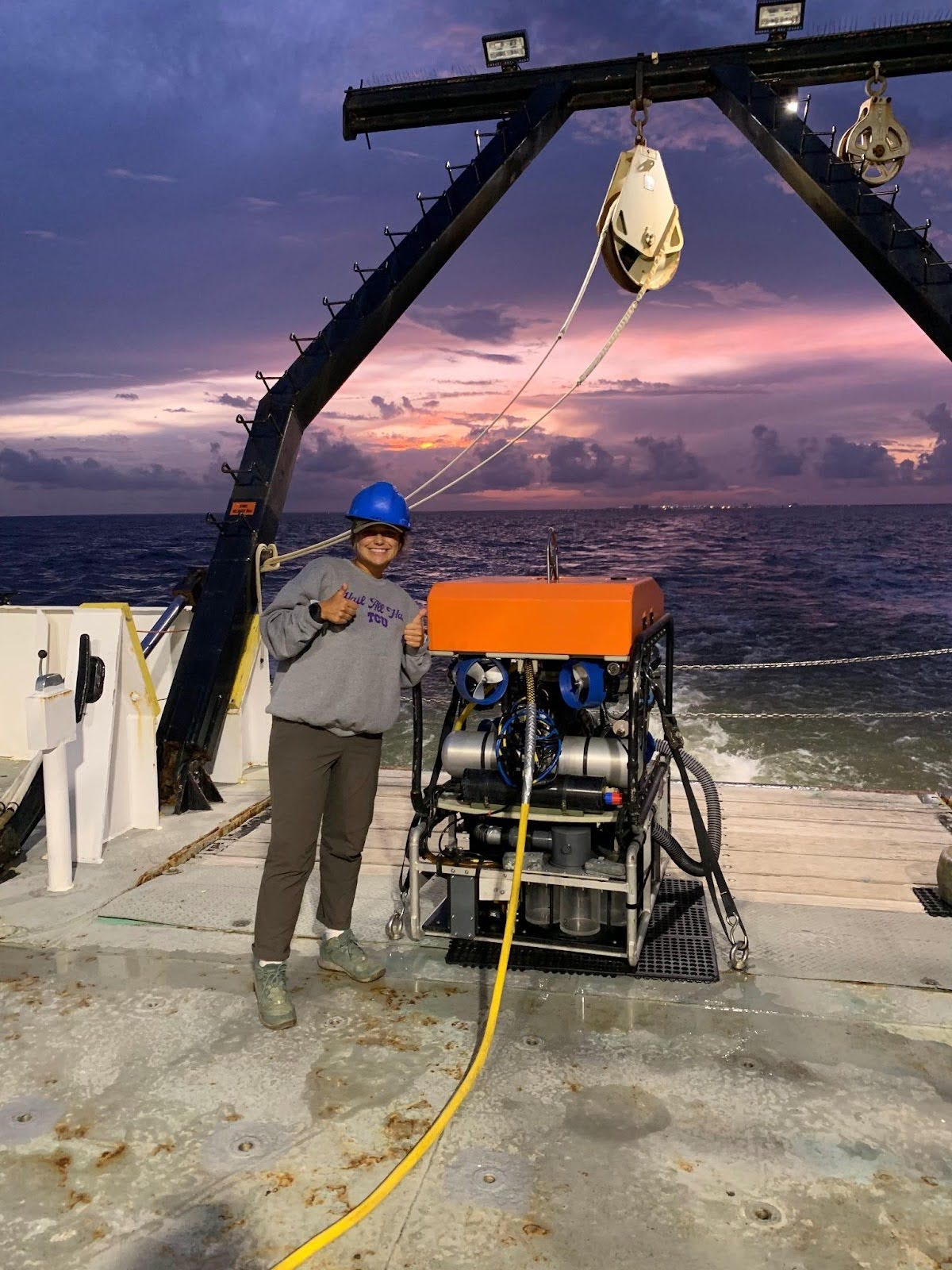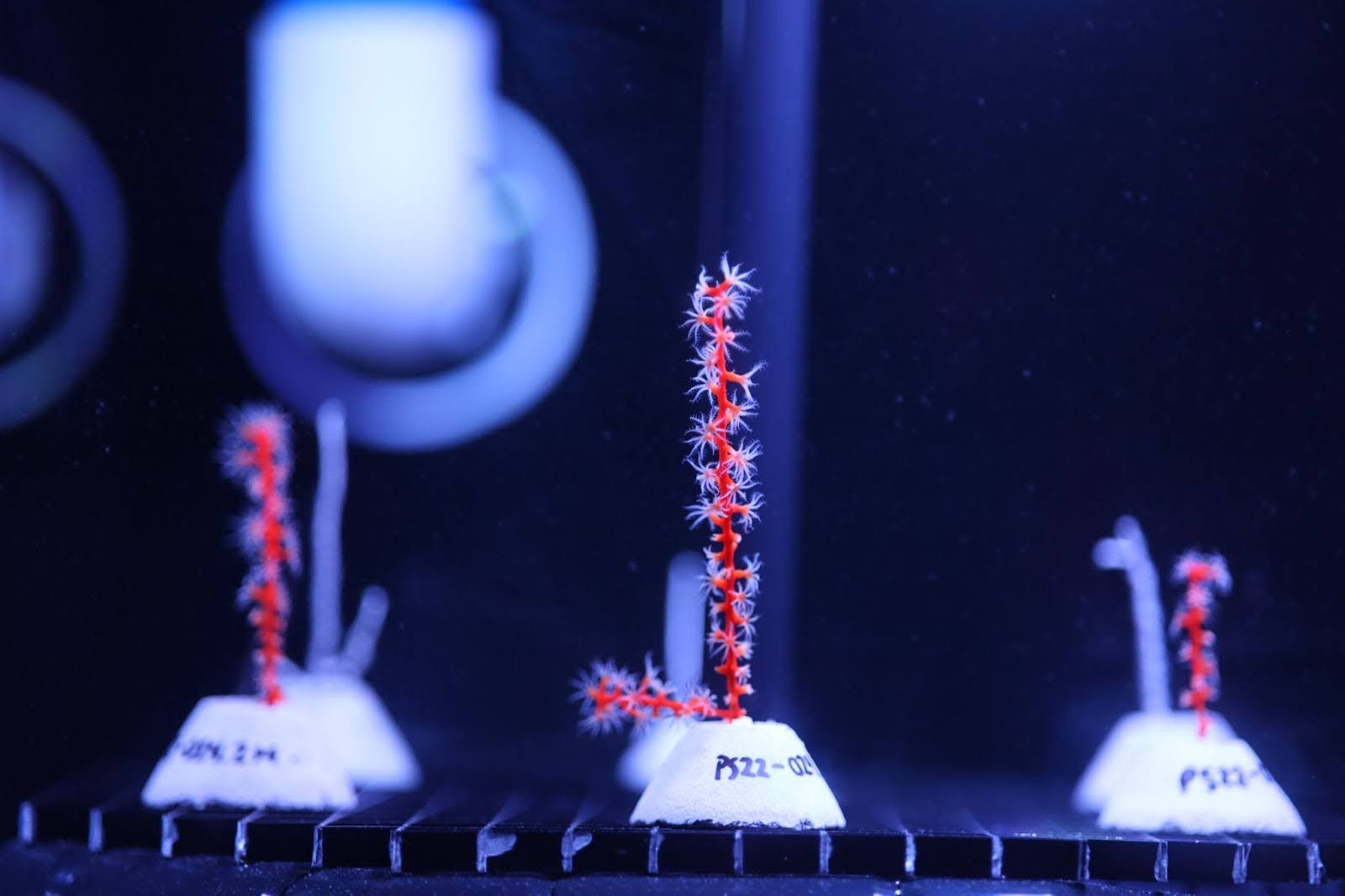
The National Oceanic and Atmospheric Administration (NOAA), the U.S. Geological Survey (USGS) and partners are leading a long-term “Coral Propagation Technique Development” project to inform coral restoration in areas impacted by the Deepwater Horizon (DWH) oil spill.
During an expedition in October 2021, two species of octocorals, Muricea pendula and Swiftia exserta, were collected from 50–65 meter depths from the Northern Gulf of Mexico using a remotely operated vehicle (ROV). NCCOS scientists at Hollings Marine Laboratory in Charleston, SC transferred the coral colonies back to shore for laboratory-based studies. The results are published in a new paper in Frontiers in Marine Science that describes high rates of survivorship in the lab, but slow rates of growth for these two species injured by the Deepwater Horizon oil spill.
The objective of the study was to determine if fragmentation (a process of cutting the corals into smaller pieces to allow for asexual reproduction) is a viable tool for restoration of mesophotic coral ecosystems, and whether there is an optimal fragment size for efficient laboratory-based growth. The fragments of S. exserta and M. pendula were studied for 90 days under laboratory conditions using photogrammetry, or image based measurement, to assess the fragmentation size influence on the overall health and total growth of the coral colony.
No significant difference was found in growth between the three fragmented size classes, however there was a significant difference in growth rates between the two species, with faster annual growth for S. exserta (1.490 ± 0.399 cm/year) than for M. pendula (0.550 ± 0.228 cm/year). Fragments from healthy source colonies remained healthy, while fragments from an unhealthy colony experienced tissue loss under laboratory conditions.

In addition to NCCOS’ Hollings Marine Laboratory, NOAA and USGS federal labs in Galveston, TX and Gainesville, FL have also established new coral aquaria systems to keep these corals alive in labs and better understand their biology and genetics. In 2023, these teams also began collaborating with new partners at public aquariums, including the Mississippi Aquarium, Philip and Patricia Frost Museum of Science, Mote Marine Lab, and Audubon Aquarium, which will expand the team’s capacity to continue this work in 2024 and beyond. The team is also partnering with academic labs, including Texas A&M University at Galveston and University of North Carolina Wilmington.
To learn more about these projects, visit the Gulf MDBC Restoration webpage.
